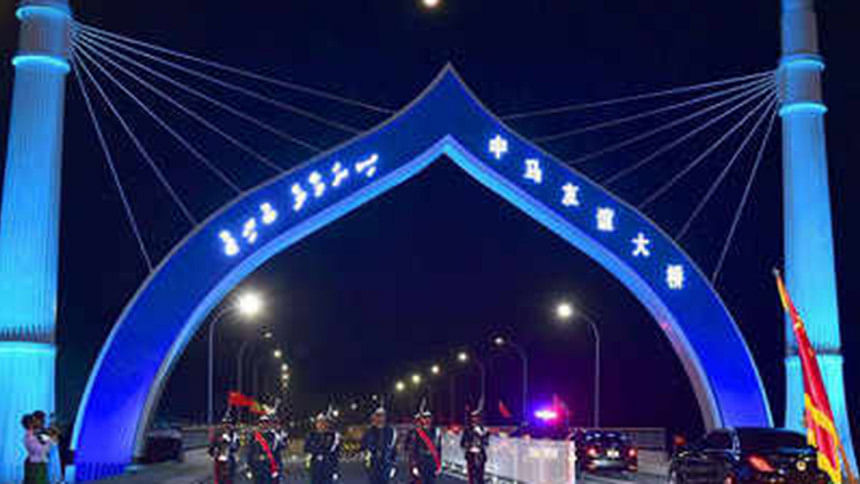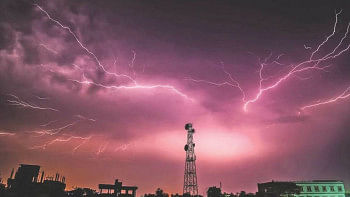India boycotts Maldives event

China's flagship infrastructure project in the Maldives, a bridge linking capital Male with the airport island, has again brought into focus the widening gulf between India and its Indian Ocean neighbour.
India chose to stay away from the inauguration on Thursday of what is officially known as the Sinamale Bridge with its ambassador Akhilesh Mishra not attending the event, reported TNN.
However, it is not only India which stayed away from the event. According to opposition party spokesperson Ahmed Mahloof, envoys from Sri Lanka and Bangladesh also did not attend.
Indian officials chose not to comment on the issue. It is learnt that an invitation was extended to the Indian Ambassador to Maldives Akhilesh Mishra to attend the event.
Ahmed, in a tweet posted on August 31, said: "Ambassadors of Sri Lanka and Bangladesh boycotted the bridge inauguration event as their cars were stopped by Yameen's security and they were asked to walk. Only Chinese Ambassador's car was allowed to pass up to the venue. Such an insult to traditional friends."
Maldives President Abdulla Yameen described the $200 million bridge as the biggest achievement in the country's diplomatic history.
The opposition has termed the bridge, which is meant to end congestion in Male, as a debt trap and accused Yameen of massive corruption in the project.
The exiled leader of the opposition in the Maldives, Mohamed Nasheed, has said China's actions in the Indian Ocean archipelago amounted to a "land grab" and "colonialism", with 80 percent of its debt held by Beijing.
Also known as China-Maldives Friendship Bridge, the bridge was built with, according to Male, a grant of $116 million by China. Apart from the grant, Beijing also provided $72 million as loan for the 1.4 km bridge.
The financing of the bridge has sparked fears of Male getting enmeshed further in Chinese debt net.
India has been alarmed by the manner in which the cost of the project shot up in the past few years.
A Delhi-based western diplomat who handles Maldives said even the "official cost of the project" $200 million was almost thrice that of the estimate prepared by former president Mohamed Nasheed government in 2011.
"Given the lack of transparency and parliamentary scrutiny in government affairs, no one really knows the actual cost of the project … some people say it may even have crossed $300 million," he said.
A preliminary survey carried out by overseas experts in 2011, while noting the viability of the project, had estimated a total cost between $70 million to $100 million.
The Indian Ocean country of 340,000 people has been on edge since Yameen -- who has jailed or exiled almost all his opponents -- imposed a 45-day state of emergency in February. He even sacked and jailed the country's top judge after the top court ordered to free the opposition leaders including Nasheed.
Maldives is expected to go to polls later in the month.
The US and European Union have expressed deep concern over Yameen's actions, and rights activists have called for sanctions on the president and his aides.

 For all latest news, follow The Daily Star's Google News channel.
For all latest news, follow The Daily Star's Google News channel. 



Comments